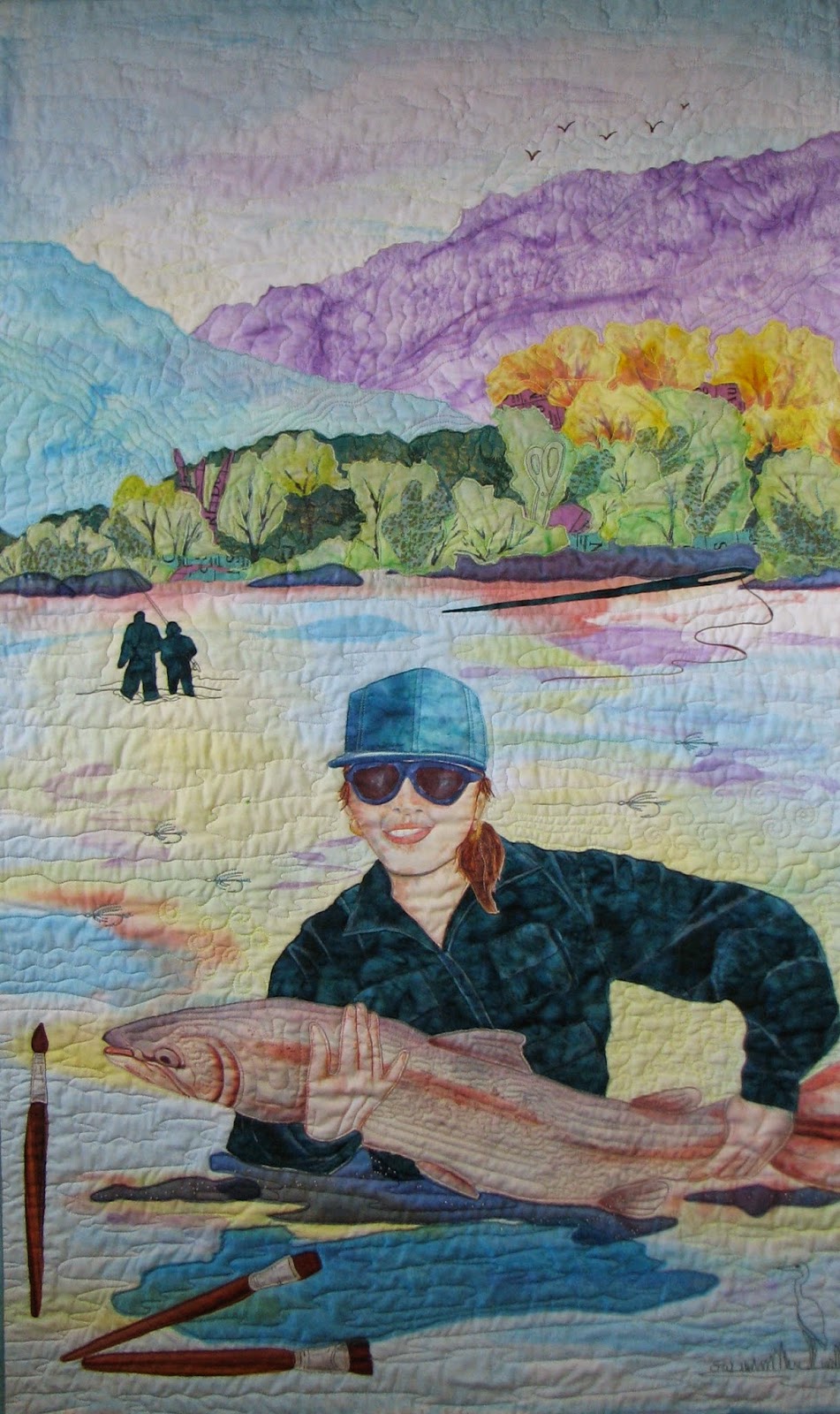 |
| It's A Wonderful Life |
I thought I’d show you how I did the jacket, hat and rest of
the foreground pieces in this post. The jacket and hat were made from purchased
batik fabrics. You can see the jacket fabric below in this photo of my auditioning fabrics. As you can see, its pretty dark, and I had to figure out how to give the jacket some dimension. Normally dimension comes primarily from shadowing. But in this case, I added dimension with highlights.
 |
| auditioning fabrics |
For the highlights
I took some white textile paint and mixed it with blue/green textile
paints to create a light version of the jacket color. I thought it worked
pretty well to give highlights and blend into the jacket fabric. In this photo you can see the jacket folds and pockets made primarily by painting highlights.
.JPG) |
jacket highlights
|
The hat fabric was a lighter shade of blue/green, so creating shadows was easier. I just painted the shadows as I normally would.
 |
| painting the hat |
The fish started with a speckled beige fabric that
I purchased. I painted the reddish/yellow and maroon tones on the fish body and fins to
give definition. Additional speckles were added to the body by flicking paint
with a tooth brush.
 |
painting the fish
|
 |
| tail |
The shadow of the fish body and my arms on the water is made
from organza. I used a couple different organza colors. Fray Block was applied
to the edges to help prevent fraying.
 |
| Fray Block |
.JPG) |
| shadow placement |
Each of these parts were cut out and painted
separately and then assembled. Fabric glues and fusibles were used to
temporarily hold them in place. Then I stitched them all down with machine
appliqué.
Thanks for visiting my blog!


.JPG)




.JPG)
Your painting and stitching make the fish outstandingly realistic. The same is true for the shirt and hat. It's good to know that Fray Block will keep organza from fraying. Your use of the organza to create shadows is brilliant. Thank you for sharing all the stages of this work's development.
ReplyDelete